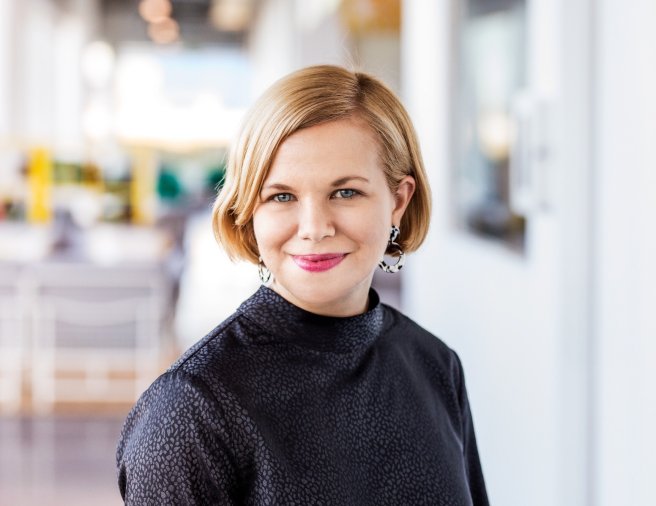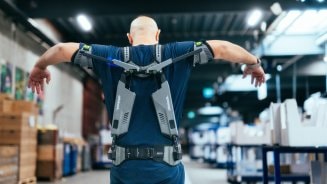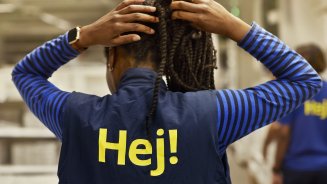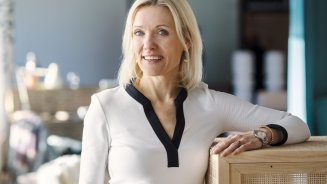In this series, we meet the leaders of Ingka Group, the largest IKEA retailer, to share their insights on what makes good leadership and the vision, values, and learnings that have shaped them and their leadership approach. Julia Olofsson, Ingka Group’s Global Director of Human Rights and Social Impact, was selected for the 2024 Meaningful Business 100, which celebrates leaders combining purpose and profit to help achieve the UN Global Goals. We sat down with Julia to hear more about her work helping IKEA to realise its vision of making a better everyday life for the many people.
Julia, can you tell us what inspired you to take on the role of Director of Human Rights and Social Impact at Ingka Group?
I’ve always been passionate about human rights and knew from early on that was what I wanted to work with. I truly believe that we, as a company, have a big responsibility, but also an opportunity to make a positive difference in people’s lives. I am currently the Global Director of Human Rights and Social Impact at Ingka Group, where I lead the strategic direction of our human rights and social impact efforts. My role spans many topics such as refugee inclusion, community engagement, human rights in our value chain and just transition and together with the team, we work across our own operations, our supply chain and in the local communities where we are present.
Human rights and social impact are huge areas. How do you focus your efforts within such broad topics?
Our priorities are informed by the impact that we have and where we, as a company, can make a difference. At Ingka Group, we approach human rights through a structured framework guided by global standards such as the UN Guiding Principles on Business and Human Rights. Last year, we completed a company-wide human rights baseline assessment to ensure alignment with upcoming human rights legislation. This assessment helped us identify gaps in governance and further strengthened our approach to tackling salient risks like modern slavery and unsafe working conditions.
Can you tell us more about the Skills for Employment programme?
Our Skills for Employment programme is one of the initiatives I’m most proud of. This programme is designed to support refugees and people that are forcibly displaced, helping them integrate into local labour markets by providing on-the-job skills development and language training. So far, more than 3000 people across 24 countries have participated in Skills for Employment since it started.
Taking this further, at the end of last year we expanded our commitment by adding a new target to support the employability of an additional 3000 refugees. This includes upskilling, direct hiring and language support.
Ingka Neighbourhoods is a newer initiative. Can you tell us more about its purpose and impact?
The Ingka x Neighbourhoods approach is part of our commitment to creating positive social impact in the communities surrounding our stores and meeting places. The approach has been rolled-out to all our markets and meeting places, and allows our business capabilities to support local neighbourhoods. The approach focuses on projects across three areas where we believe we can make the most difference: increasing access to better homes; creating pathways to decent work; and enabling as many people as possible to participate. Through our partnerships with local NGOs and community groups, we’ve already been able to support over 99,000 people. It’s all about long-term, meaningful impact, and we’re excited to continue expanding these efforts.
How does human rights work align with Ingka Group’s broader sustainability goals?
Human rights and social impact are core pillars of our sustainability strategy. At Ingka, we believe that protecting human rights is key to achieving a better everyday life for people and supporting a better planet. We strive to reduce the environmental footprint of our operations while ensuring that the most vulnerable communities – who often face disproportionate impacts of climate change – are supported. Our work supporting a just transition, responsible sourcing, and the promotion of safe working conditions directly links human rights to our sustainability goals.
Looking ahead, what are your top priorities for human rights and social impact at Ingka Group?
Our top priorities include further embedding human rights into every part of our business, ensuring that we know and understand the impact that we have on people in our value chain. This year, our focus is on creating more pathways to employment for people far away from the labour market through integrating more social enterprises into our value chain, continuing to support the employability of refugees and strengthening worker protections. Another priority is expanding our human rights due diligence process to ensure that we are proactively addressing risks across our entire value chain.
About Ingka Group
With IKEA retail operations on 31 markets, Ingka Group is the largest IKEA retailer and represents about 90% of IKEA retail sales. It is a strategic partner to develop and innovate the IKEA business and help define common IKEA strategies. Ingka Group owns and operates IKEA sales channels under franchise agreements with Inter IKEA Systems B.V. It has three business areas: IKEA Retail, Ingka Investments and Ingka Centres. Read more on www.Ingka.com.
Media enquiries
For further information, journalists and media professionals can contact us at [email protected] or by calling +46 70 993 6376.













